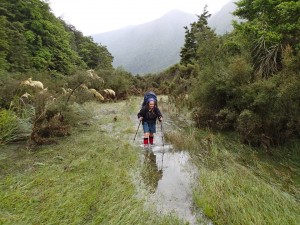I came across the following event and it caught my eye. I thought it may be of interest to other students of law, who are similarly intrigued by considerations surrounding international law and global justice. Rather than write about another captivating event after the fact, I thought I’d first share the opportunity to attend with all of you!
Maybe I’ll see you there!
Just a quick housekeeping note – although this event is in fact free and public, please make sure you reserve your seat online, at the following link.
Reserve online here.
Fairness and Legitimacy in International Law-Making
Thursday, January 31, 3:30 pm
IRMACS Theatre, ASB 10900, Burnaby campus
Dr. Thomas Christiano, Philosophy, University of Arizona, will be speaking at the President’s Dream Colloquium on Justice Beyond National Boundaries.
Sample of Thomas Christiano:
A Democratic Approach to the Legitimacy of International Institutions

Dr. Thomas Christiano’s Lecture Abstract:
I will explore one of the main worries concerning the idea that state consent is at the basis of the moral legitimacy of institutional law and institutions. One frequent charge against the legitimacy of contemporary international institutions such as the World Trade Organization is that though they were consented to by member states, they are the product of wealthy countries taking unfair advantage of poor countries’ vulnerabilities. This charge is intuitively quite strong but it is rarely given a careful theoretical articulation.
I will construct and defend a general moral conception of fairness as a standard for assessing agreements like contracts. In my presentation, I will give an account of the nature of unfair advantage taking in the making of agreements and criticize the traditional common law standard of fairness in agreements as the avoidance of force and fraud.
My argument defends an egalitarian and procedural account of the standard of fairness in the making of agreements. The idea is to characterize an ideal in which agreements are fairly arrived at when the parties have equal opportunities to avoid the agreement. Unfair advantage taking takes place when and to the extent that one party takes full advantage of the lesser opportunities of the other party to extract benefits from the agreement. The better-placed party need not entirely erase the differences in opportunities in order to avoid unfair advantage taking. It need only make a reasonable contribution to the enhancement of the capacity of the other party to have a say in the making of the agreement.
I will proceed from a defense and articulation of a general account of fairness and unfair advantage taking and then applies it to the special context of international agreement making. This context is distinctive in a variety of ways that are relevant to the assessment of the fairness of the agreements and unfair advantage taking.
My presentation gives an account of the distinctive characteristics and then shows how the basic standards of fairness apply. I then proceed to determine whether and how unfair advantage taking in the process of securing the consent of the state parties can reduce the legitimacy of the institutions that are created through the unfair process of agreement. Once fairness is thought of as a constitutive part of the legitimacy conferring process of international law making, the notion of legitimacy must itself be enriched in various ways the paper articulates.
I will also makes some recommendations for enhancing the legitimacy of the process of institution building in international law-making.

